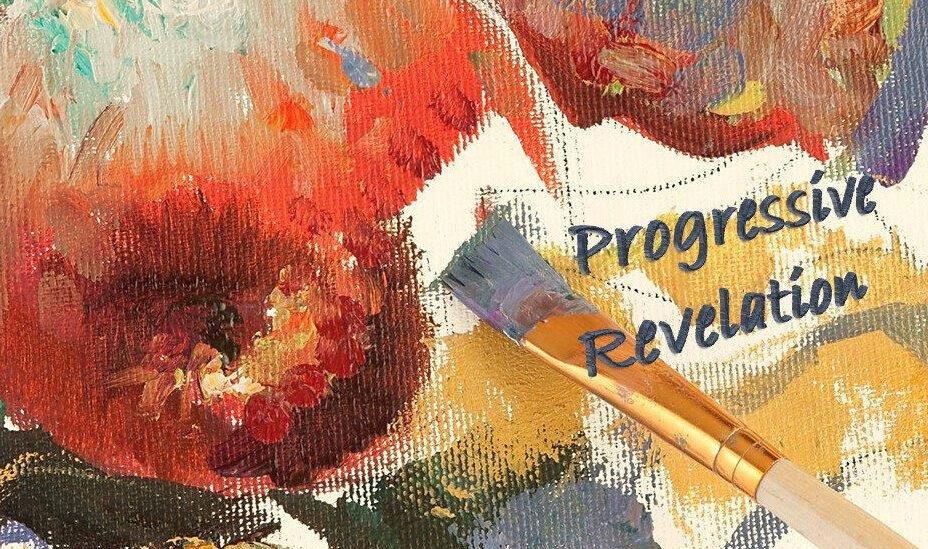Progressive Revelation stands as a cardinal tenet of the Bahá’í Faith, encompassing a profound understanding of the divine guidance bestowed upon humanity throughout history. This concept posits that God reveals His will progressively through a succession of Messengers or Prophets, each bringing teachings suited to the needs and conditions of the time. The Bahá’í perspective on this theme elevates it beyond mere theological construct; it embodies an essential framework for comprehending humanity’s spiritual evolution, interfaith harmony, and the grandeur of divine intent.
The notion of Progressive Revelation invites contemplation about the nature of divine communication. Historically, societies have been recipients of God’s word through figures such as Moses, Jesus Christ, Muhammad, and, in modernity, Bahá’u’lláh, who is regarded by Bahá’ís as the latest in this illustrious line. Each of these Messengers elucidated principles that were both timeless and contextually relevant, adapting divine messages to the societal norms and spiritual needs of their distinct epochs. Such a progression enables a broader understanding of religious teachings, inviting adherents to appreciate the shared lineage of spiritual truth.
The fascination surrounding Progressive Revelation often springs from the desire to reconcile the multiplicity of religious experiences with a unified theological framework. The Bahá’í teachings articulate that, although the manifestations of God address humanity at different points in time with varying specifics, the essence of their message remains fundamentally cohesive. This reveals a tapestry woven from diverse traditions yet rooted in a singular divine purpose: the spiritual maturation of humanity. It allows followers of different faiths to find common ground, promoting a discourse centered on unity rather than division.
The idea of a progressive unfolding of religious truth raises numerous philosophical and theological questions. How does one reconcile the discrepancies found within religious scriptures? The Bahá’í elucidation of this doctrinal point provides clarity. The messages of each Prophet are interrelated, each fulfilling a distinct role in the divine plan. For instance, while the principles of justice in Islam serve a particular function, they may be enhanced or further clarified in the teachings of Bahá’u’lláh. Thus, these revelations do not negate one another; instead, they amplify the understanding of the divine will over time.
Moreover, the implications of Progressive Revelation extend into the realm of ethics and morality. As societal conditions evolve, so too do the moral imperatives conveyed through revelation. This dynamic interpretation encourages adherents to apply spiritual principles to contemporary issues. It is not enough to revere past teachings; followers are urged to translate these principles into action within the modern context. Bahá’ís are called to engage with pressing global challenges, embodying the essence of spiritual guidance to foster peace, justice, and compassion.
This perspective reinforces the importance of critical engagement with doctrine. The Bahá’í Faith does not advocate blind adherence to established norms; rather, it encourages its followers to seek understanding actively. Through the lens of Progressive Revelation, one can examine the evolution of moral and social teachings over time—a journey that underscores the need for continuous learning and adaptation. The allowances for reinterpretation imbue the faith with a vibrant dynamism, making it profoundly relevant as the world confronts new dilemmas.
Another dimension of Progressive Revelation worth exploring is its approach to interreligious dialogue. Within a global landscape increasingly characterized by pluralism, the Bahá’í framework encourages respect for varying expressions of faith. The teachings affirm that no one religion holds a monopoly on truth. Instead, it acknowledges that each faith contributes a unique piece to the overarching narrative of divine engagement with humanity. This ecumenical ethos fosters an environment where respectful collaboration and greater understanding among diverse religious groups can flourish, diminishing hostilities often rooted in dogmatism.
In addressing the complexities of human existence, Progressive Revelation also presents a poignant commentary on the nature of human agency. It signifies that while divine guidance is constant and ongoing, the realization of its potential is contingent upon humanity’s response. Every individual bears a responsibility to internalize the lessons imparted through revelation and to act upon them within their communities. The faith espouses that a proactive approach to spiritual growth leads to greater societal transformation. It is a call to empower individuals to become both learners and teachers in their pursuit of truth.
A particularly enriching aspect of this doctrine is how it offers a lens through which to view historical occurrences and societal changes as part of an unfolding divine narrative. Understanding history through the framework of Progressive Revelation allows one to identify the richer layers of meaning inherent in past events. It lends credence to the notion that humanity is not aimlessly adrift, but rather guided along a trajectory toward greater global unity, justice, and peace.
In conclusion, Progressive Revelation emerges as a cornerstone of the Bahá’í Faith, encapsulating a multifaceted approach to spiritual understanding. It invites humanity to engage with a continuum of divine wisdom while acknowledging the historical context of religious messages. This doctrine serves as a bridge, fostering interfaith dialogue and inspiring a collective movement towards shared values of compassion and cooperation. As society advances into an increasingly intricate future, the teachings of Progressive Revelation remain ever relevant, ensuring that the pursuit of truth remains dynamic and intertwined with human progress.
